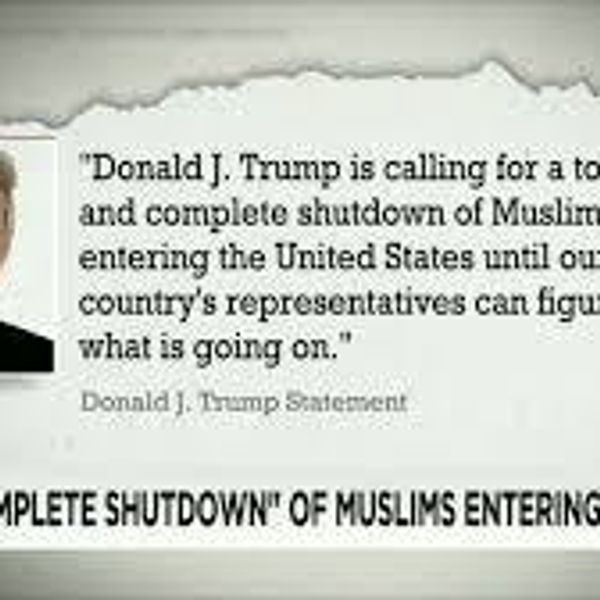The fine line between keeping American citizens safe and protecting civil liberties has grown increasingly contentious since the attack on September 11, 2001. The government has no doubt stepped up its efforts to meddle in citizens’ private communications in the name of security from terrorism. When in war, which the United States effectively is, the government has the right and responsibility to expand security measures to keep its citizens safe.
The United States’ government has a storied history of amping up security measures, sometimes in controversial ways, to protect its citizens from a known and recognized threat. During World War II time, the United States developed internment camps for between 110,000 and 120,000 Japanese-Americans and was weary of and convicted a number of Germans for suspicion of espionage. McCarthyism sprouted during the 1950’s in what was eventually labeled “The Red Scare” as a method of identifying and convicting potential communists and their hypothetical allegiance to the Soviet Union. Today, America faces an enemy of its own: terrorism and radical jihad. No, the United States is not implementing detention centers for Muslims. In the past, America employed the inhumane tactics of unjust court proceedings and jailing suspected sympathizers with the enemy through detention centers in the name of security. So today, with the United States long putting these methods to rest, if the government feels reading its citizen’s social media management will help identify terrorist supporters - a much more appropriate security technique than jailing all Muslims or shaming Muslims through unjust court rulings and punishments - the government has that responsibility.
Tips from local communities and targeted intelligence operations are still the leading factors for thwarting a terrorist operation. However, in a study of 225 al-Qaeda or like-minded individuals charged with terrorism since 9/11, increased involvement from the NSA (National Security Agency) has proven worthwhile. 1.8% of these cases have been initiated by the bulk collection of telephone data and 4.4% of these cases can be attributed to NSA surveillance on non-US persons outside of America. As of 2013, at least 50 terrorist plots were thwarted both in America and in European nations like Germany because of the NSA. These are statistics that politicians from both major political parties deem to be true. President Obama had this to say when he defended the NSA in Germany two weeks after the Edward Snowden leaks: “We know of at least 50 threats that have been averted because of this information not just in the United States, but, in some cases, threats here in Germany. So lives have been saved.” Representative Mike Rogers (R-Michigan) emphasized Obama’s remarks: “54 times [the NSA programs] stopped and thwarted terrorist attacks both here and in Europe – saving real lives.” Rogers is the chairman of the House Permanent Select Committee on Intelligence. 54 thwarted attacks could mean thousands of lives saved - and that is nothing to scoff at.
Some may believe that the NSA is acting unconstitutionally. Even without the Patriot Act of 2001 as signed by President George Bush, which only emphasizes the agency’s responsibility to act to protect Americans, the Constitution written in 1787 backs the agency’s actions as well. Americans are excruciatingly contradictory. Nobody wants another 9/11 attack, especially after the recent Paris and Orlando shootings, but some are also paradoxically not willing to allow the government to obtain the resources necessary to thwart the same attack they fear. One power of the national government, per the Constitution, is the ability “To declare war, authorize warlike activities by other than the armed forces, and make rules concerning captures.” The government can regulate other warlike activities besides the armed forces, and very broadly one of those “activities” is the domestic security of the nation, which the NSA is proven to have accomplished as evidenced by President Obama’s and Congressman Roger’s comments above. The Constitution has more; the document declares two personal securities Americans have: “(1) Not to be killed.
(2) Not to be injured or abused.”
This matches up perfectly with the first priority of the government as the Constitution explains: “(1) To provide for the common defense and general welfare.” The NSA is thus fulfilling the Constitution to the fullest extent by, in a humane yet productive way, protecting the two personal securities all Americans have the right to while promoting the common defense of the nation.
To conclude, the NSA is well within their responsibilities to increase security measures to protect America from future attacks. Only people that truly are pledging allegiance to radical terrorist groups and are plotting against the West have good reason to fear from the NSA surveillance: decent people still retain the full benefit of the Constitution’s first amendment and freedom of speech. NSA surveillance is working, has saved lives and should be allowed to continue doing the work they do to continue to save lives from the ever-changing threats faced today.
Works Cited
"Constitutional Rights, Powers and Duties." Constitutional Rights, Powers and Duties. Constitution Society, Web. 18 Sept. 2016.
"Do NSA's Bulk Surveillance Programs Stop Terrorists?" New America. New America, 13 Jan. 2014. Web. 18 Sept. 2016.





















